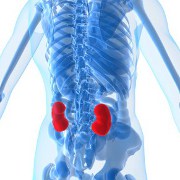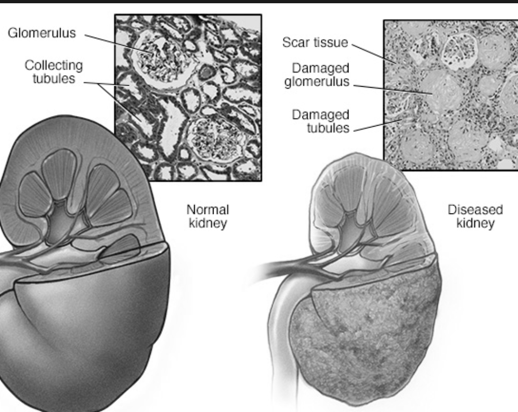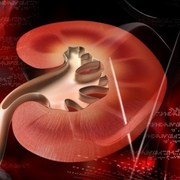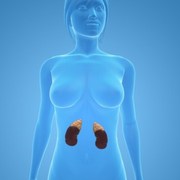 Ingram Publishing/Thinkstock
Ingram Publishing/Thinkstock
A diagnosis of chronic kidney disease can feel like a blow to the gut. But if you've gotten this diagnosis, you aren’t alone. About 1 in 10 Americans has CKD, a disease that requires careful management of diet, lifestyle, medications and even dental health.
According to the National Kidney and Urologic Diseases Information Clearinghouse, more than 20 million Americans ages 20 and older have chronic kidney disease, which occurs when your two kidneys are not properly cleaning and filtering blood.
The diagnosis might hit you as you are being treated for one of CKD’s three major risk factors -- diabetes, high blood pressure and heart disease. Also, a family history of kidney failure might be the motivating factor in getting tested for CKD.
Kidney disease, if it gets worse over time, can lead to dialysis and the need for a kidney transplant. Luckily, keeping your kidneys healthy and getting regular checkups can help prevent kidney failure.
To keep an eye on things, health care professionals will want to check your GFR (glomerular filtration rate), urine albumin (protein), blood pressure, cholesterol and, for diabetics, your blood sugar.
In addition, a dietitian might help you choose the right foods. Basically, you need to keep your diet low in salty foods and red meat, while emphasizing fruits and vegetables, whole grains and low-fat dairy foods. Regarding salt, a rule of thumb for CKD patients is less than 1,500 milligrams of sodium daily.
A dietitian also will advise you to eat small portions of protein from both animals and plants, along with choosing heart-healthy cooking methods, limiting foods with phosphorus and getting the right amount of potassium.
“Eating Right for Kidney Health: Tips for People with Chronic Kidney Disease (CKD)” is a helpful PDF that you can download from www.nkdep.nih.gov/
Kidney health also requires limitations on alcohol consumption and an end to smoking, along with managing your weight through calorie control and exercise.
As for dental health, when you’ve been diagnosed with chronic kidney disease, the rules set down by dentists most definitely apply. Brushing twice a day and flossing at least once a day.
DaVita Inc., which operates hundreds of kidney dialysis facilities in the United States, says on its Kidney Disease Education webpage, that patients with chronic kidney disease are at risk for periodontal disease. This partly stems from weakened immune systems and susceptibility to infections.
On top of that, imbalances of calcium and phosphorus related to CKD can bring about weak jaw bones and tooth loss.
If your CKD is related to diabetes, you are at a higher risk for not only periodontal disease, but also cavities, salivary gland complications, fungal infections and delayed healing, according to the DaVita site.
The steps to taking care of yourself after a diagnosis of chronic kidney disease can sound overwhelming. But as many medical experts will tell you, with certain precautions you can live a long and healthy life.
Sources:
“Kidney and Urologic Disease Statistics for the United States.” National Kidney & Urologic Diseases Information Clearinghouse. Web. 4 April 2012. http://www.kidney.niddk.nih.gov/KUDiseases/pubs/kustats/index.aspx
“Kidney Disease Basics.” National Kidney Disease Education Program. Web. 4 April 2012.
http://nkdep.nih.gov/learn/kidney-disease-basics.shtml
“Diet and Lifestyle Changes.” National Kidney Disease Education Program. Web. 4 April 2012.
http://nkdep.nih.gov/living/diet-lifestyle-changes.shtml
“Dental Health for People with Kidney Disease.” DaVita.com. Web. 4 April 2012.
http://www.davita.com/kidney-disease/overview/symptoms-and-diagnosis/dental-health-for-people-with-kidney-disease/e/4731
Reviewed April 5, 2012
by Michele Blacksberg RN
Edited by Jessica Obert






Add a CommentComments
There are no comments yet. Be the first one and get the conversation started!